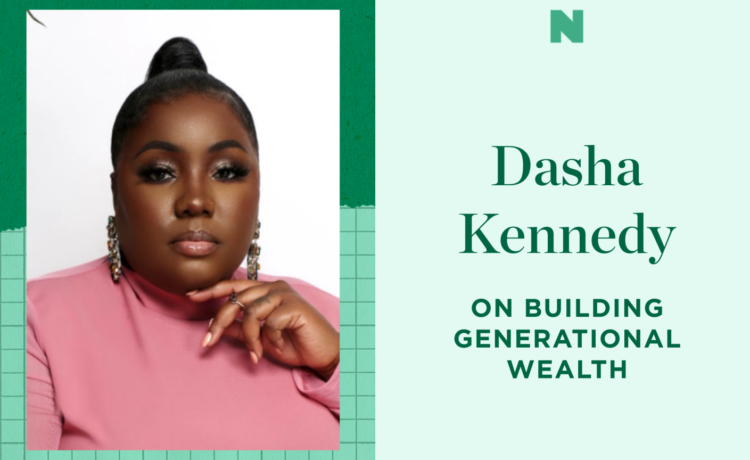
Dasha Kennedy, financial coach and founder of the 80,000-member Facebook group The Broke Black Girl, is no stranger to struggle. She said she didn’t have the luxury of receiving a quality financial education at a young age, nor did she come from a wealthy background. She taught herself everything she knows about money management.
“My journey involved a lot of trial and error,” said Kennedy, a St. Louis native now residing in Atlanta, in an email interview. “I had to deal with financial mistakes, learn from them, and find ways to build a stable financial future from scratch.”
A mother of two boys, Kennedy has made it a priority to break the generations-long chain of financial trauma. Having early, honest conversations about money management with her children is just one way she aims to do that.
How to start building wealth from scratch
Kennedy said some people from underrepresented communities face systemic barriers, such as limited access to financial education, fewer wealth-building opportunities, and discrimination in lending and employment.
“Many people in these communities grow up without learning basic financial skills, making it harder to manage money effectively,” Kennedy said. “These challenges mean that financial education and resources need to be tailored to address these specific barriers.”
If you want to build wealth, Kennedy said, begin with the basics — educating yourself. She recommends free online courses or workshops about personal finance.
Another essential step in the wealth-building process is understanding your current financial situation, she said. Know what you spend money on, what your budget is, and where you can find room to save even a small amount.
When considering investing for the first time, Kennedy said, start where you are. You don’t need extensive knowledge to invest, or a lot of money — a little bit can go a long way for future you, she said.
“For many people, saving can bring up feelings of anger, frustration, or fear because it highlights past financial struggles or insecurities,” she said. “I encourage people to see saving as a form of self-care and empowerment; changing the narrative from deprivation to investment in their future.”
Generational wealth can look different for everyone
Kennedy said having candid conversations about money is one way to create new norms. Something as simple as looping your kids in on a discussion about the family budget can make an impact.
“Be open and honest with your children about money. Share your financial experiences, both the successes and the mistakes,” she said. “Make these conversations a regular part of your family’s routine so that talking about money becomes normal and not something to be feared or avoided.”
To further set her children up for future financial success, Kennedy teaches them the importance of saving and budgeting by giving them allowances to manage. She guides them in achieving their goals, while stressing the importance of hard work and education in financial success.
For Kennedy, generational wealth isn’t just one person in a family having money; it requires an all-hands-on-deck approach.
It’s not just about money or assets, Kennedy said. Generational wealth can look like helping a family member build their resume or watching their kids while they attend a job interview, she said.
“Generational wealth involves generational support,” she said. “It’s guaranteeing that my children, and their children, have financial stability, access to education, and opportunities to pursue their dreams without the same financial struggles I faced.”
















